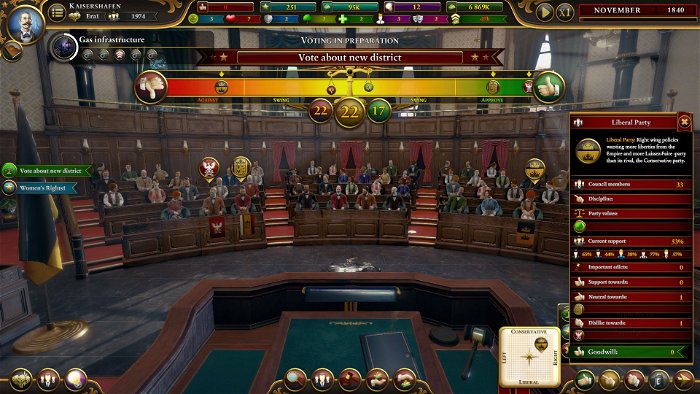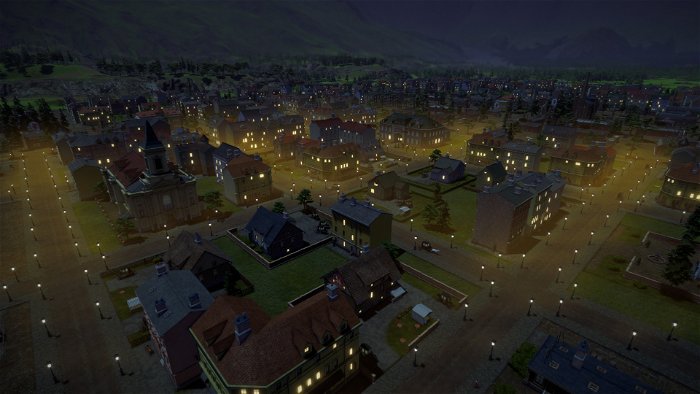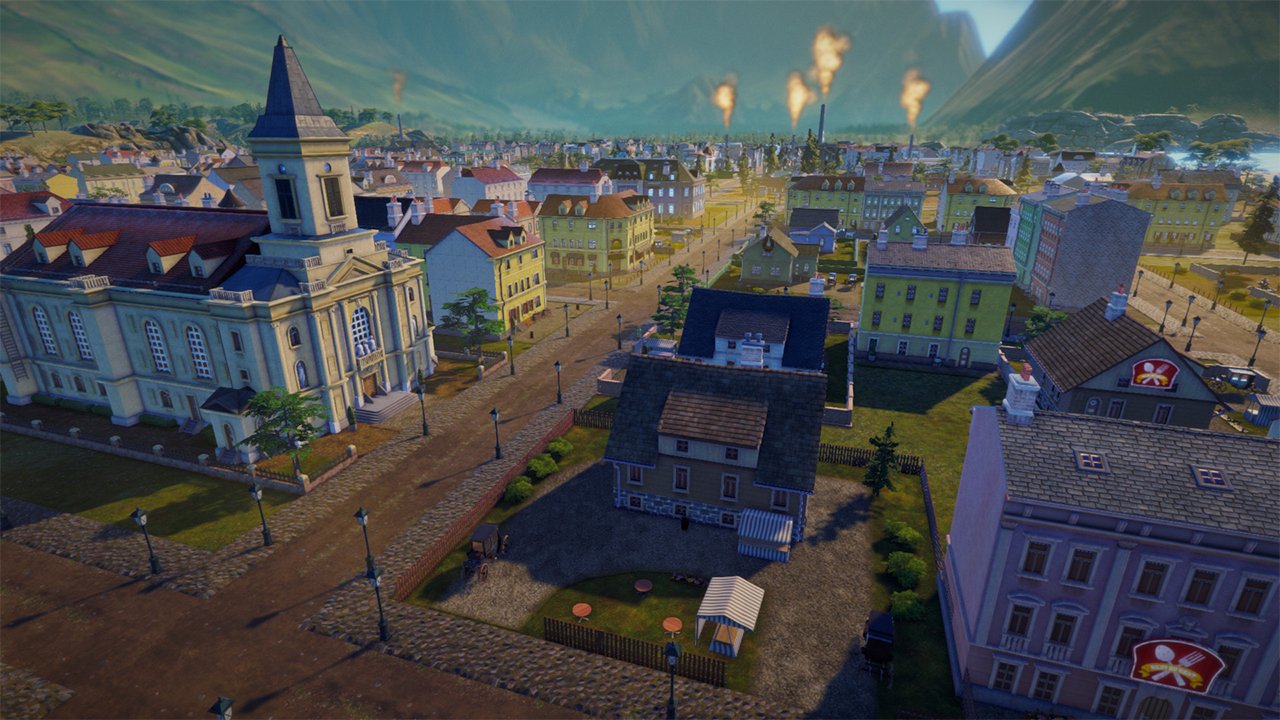City sims are one of the most complex yet rewarding genres to play. As is the truth in the reality of city operations, there is so much micromanagement at play that the user needs to be aware of each decision they make to ensure their city can keep a balanced budget, happy citizens and healthy relationships with other city-states. Still, even with all the small details, no city sim lets players actually take on the role of a politician, dealing with the ins and outs of the political systems and balancing the needs of the people along with personal beliefs. That’s why Reborn Games’ Urban Empire is such a refreshing take on the genre. I had a chance to preview the game last summer, and since then it’s been on my radar as a must play title. Unfortunately, it seems I may have been a little too anxious to give this title a whirl, but it’s still worthwhile for strategy fans. Though it can be a little too complex and doesn’t do much in the way of explanation, Urban Empires tries something new and a little bit of innovation is never a bad thing.
Published by Kalypso, a company that makes their bread and butter off this genre (see the Tropico and Grand Ages series’ to name a few), Urban Empire lets players pick a political stance by choosing from a selection of families with varying beliefs— conservative, technologically inclined, working-class liberal, and artistic—with the goal of keeping yourself in a position of political power for as long as possible from 1820 to 2020. Beginning with a single district, players must build their city, adding more districts, researching in different fields to improve the lives of citizens, and of course voting on important decisions such as taxes and implementing policies.

This is simultaneously the best and most difficult part of the game to understand. At first glance, it’s simple enough; submit a proposal, see where other parties stand and try to convince them by pleading, threatening, demanding, or later, through espionage. The idea is to try to swing as many of the opposing parties as you can before it’s time to actually vote. Each decision you make will have an affect on how the people view you as a leader. Policies, edicts, tax increases, and building plans all have to go through careful consideration from the player before taking it through to the council, which in itself is another tough game to play. The way budding politicians handle opposing party views will change the way said parties deal with the player in the future, which makes for a delicate balance.
Not all situations start and end with the player, however. There are around 1,000 random events that can occur, which can ultimately affect the way people view you. A politician might call you out in a newspaper or a dictator from a tropical island will send you a llama (a nice call back to Tropico).
It’s important that players take a step back from their current time period when those situations occur and place themselves in the shoes of, say, an 1820’s man. Small things like setting up a town clinic or fighting for clean water might be met with resistance, and if players go too hard too fast, they could place too much stress on the budget, which is ultimately one of the most important aspects of the game.
While this honestly made for some of the most thoughtful and intense decisions I’ve made in a video game, the interface is somewhat unwelcoming. While there is a tutorial, there isn’t much explanation for pretty much anything on your HUD. Even some of the small voiced-quotes that show up as a signifier of progress don’t necessarily line up with the decisions you’re forced to make, which leaves players feeling a little unsure of what just happened. For me, the biggest issue right out of the gate was the attempt to implement gas infrastructure throughout my first district. While I could clearly go through the menus to get to a place where I could finally do such a thing, I was unable to actually bring it to the council for what felt like hours. That’s a common issue that plagued my time with Urban Empire, and it makes for a rather frustrating experience at times.
Visually, Urban Empire manages to keep itself looking interesting despite not really doing anything stunning or out of the ordinary. What Urban Empire gets right is the sense of satisfaction that comes with seeing the decisions that you fought so hard for play out on screen. Whether it’s seeing a clinic you pushed for finally get erected or the sight of your once dark town finally getting streetlights, Urban Empire nails the feeling of progress, despite its relatively minimalistic (by today’s standards) visual direction.

And that’s the best thing that Urban Empire offers—pure satisfaction. While exploring the many intricacies can be downright frustrating, and the political game can get difficult, Urban Empire is a game unlike any other in its genre. I’ve never played a sim that actually follows the rules of the democracy we have today. That alone makes it a unique enough title to at least try out. I just wish there was a little extra polish or at least a more thorough explanation on how the smaller intricacies in the game work. Despite that, Urban Empire manages to be a fulfilling city sim that stands out from the crowd.





